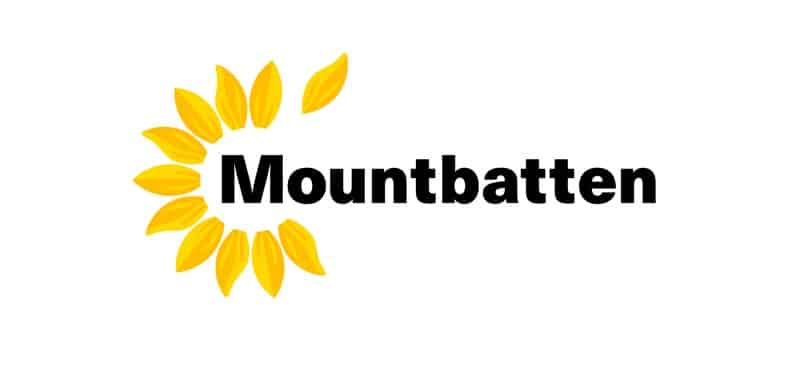Are businesses on the brink of a leadership crisis?
Updated 21st November 2023 | 7 min read Published 2nd November 2023

Who will be the leaders of tomorrow? Perhaps no one, according to new research.
A recent study uncovered that only 38% of employees are interested in people manager roles, prompting concerns of a leadership pipeline crisis for businesses across the globe.
Young people don’t want to lead is the light these findings are being painted in, but the issue is a lot more complicated.
So, what’s changed?
Have career aspirations taken a nosedive, or are we seeing an evolution of people’s desires?
What makes a good manager?
Once, the term "manager" carried connotations of prestige, respect and perhaps even admiration – it signified an opportunity to lead and a pathway to the summit.
However, this dynamic has been evolving for decades and might currently seem disconnected and antiquated.
According to the survey, only 21% of workers strongly agree that they trust their leadership; on a video regarding the survey results, many commenters highlighted a disenchantment with workplace leadership due to poor experiences, resulting in a lack of interest in pursuing more senior roles.
Well, what actually makes people good managers in 2023?
A rule of thumb is you want managers who have good communication skills, empathy, task delegation, conflict resolution, adaptability, etc.
With the right training, most good managerial traits can be taught, but you first need people wanting to embark on the journey.
Changing desires and expectations
The pandemic changed everything.
Covid put wellbeing at the forefront, giving people time to reevaluate what truly matters to them.
Since then, we’ve seen an increased focus on work-life balance, or as our recent podcast guest Liggy Webb put it, simply life balance.
Meanwhile, the pressure on managers is only growing as we see continuous economic uncertainty, a lack of internal resources and technological disruption.
It seems for many, the payoff from being a manager simply doesn’t outweigh the associated burden.
As such, it’s no surprise the survey also found that 40% of people worry becoming a manager would greatly increase their stress.
When it comes to wellbeing and culture, we often advise you to lead from the top – managers should be setting the example for a healthy work-life balance.
Interestingly, the survey found that 73% of managers agree they should be the model for wellbeing, but only 35% of employees could see that in their manager.
Are we heading for leadership-free businesses?
What’s the future going to look like? Will businesses become democracies? Will we see an enormous talent crisis once again, but for leadership roles?
No, nothing extreme.
As with other recent workplace trends and changes, businesses will have to adapt, updating what it means to be a manager.
Redefining the managerial role
Traditionally, managerial roles were viewed in an authoritative light, with people managers focusing on instructing teams and highlighting mistakes.
With this view in mind, it comes as no surprise that people aren’t keen to take on this old-fashioned role.
As such, what we expect from the manager must change in line with employee expectations.
A managerial method being utilised more and more is situational leadership, which entails an approach dictated by the circumstance and team composition.
Instead of leading from a one-dimensional angle, situational leaders take a bespoke approach.
For example, if the building is on fire, using an authoritative approach which directly instructs people to GET OUT makes complete sense and is perfectly acceptable.
However, with situational leadership, other less urgent areas, such as working with a junior member of staff require a different approach – rather than simply stating issues with their work, a coaching mentality is taken, where constructive feedback is provided, but you also ask a lot of questions and get the employee thinking.
Learn more about situational leadership here.
Training, training, training
Management training, or a distinct lack of it, has been an issue since the 70s.
Often, people are thrown into managerial roles due to a need or because it’s the next logical progression for them but offered no resources on how to handle their new responsibilities.
Being a great manager requires a completely different skill set and an enormous amount of emotional intelligence.
Yes, some people naturally have the skills needed and are born leaders, but many require upskilling.
HR software, such as IRIS Cascade, can help enormously.
Should a person either be considering a manager role or be promoted, within the system, their training portal can be populated with plenty of resources, ensuring they have the tools needed for success.
We cover the IRIS Cascade training functionality in an upcoming webinar – register here.
Reject the traditional lack of authenticity
Especially in a corporate setting, managers have historically been seen as suits, leaving their personalities at the door and instead adopting a very strict and robotic manner.
You needed to dress a certain way, speak a certain way and work a certain way.
As the workplace becomes increasingly culture-driven, this stiff approach to leadership acts as a deterrent, particularly to the younger generation.
Instead, encourage authentic leadership where you ensure you and your team are delivering what’s needed, but simultaneously, you’re still true to yourself.
The way you present yourself, connect with people and operate shouldn’t change drastically once you become a manager.
It’s all about supporting your team to bring out the best version of themselves.
Provide the tools for success
As found in the survey, a huge amount of anxiety surrounds the role of a manager, with many concerned about the workload implications.
However, with the right tools, you can alleviate this stress.
From an operational perspective, task management tools, such as Asana, help streamline the day-to-day of working with your team – assign work, view task lists and provide feedback all in one handy location.
As for the people management tasks, modern HR software offers the tools to automate admin and streamline key aspects such as appraisals, managing leave, objective setting, etc.
Build a culture based on wellbeing
People don’t leave companies, they leave managers.
The survey stated that managers understand they need to lead from the top regarding wellbeing, but employees aren’t seeing action.
So, what can you do to ensure your culture is built on wellbeing? Empathy and understanding.
For example, say an employee is moving house and needs to pick the keys up midday.
A good manager understands that the employee has life commitments and works with them to accommodate this need – perhaps they have meetings which need rescheduling.
Acts like this show a level of understanding and promote a sense of wellbeing.
Whereas, if a manager outright refuses because it is work time, it sends a completely different message.
Supporting both sides of the coin
Businesses need to support both groups of employees.
It’s crucial that the 38% who want to be managers are nurtured and developed to be the next great leaders.
As for the other 62%, if they don’t want to pursue a managerial role, that’s fine.
But those businesses that implement the above and remove the traditional stigma associated with managers will surely see an increased demand.
Lead by example and show what it takes to foster a brilliant workforce.









